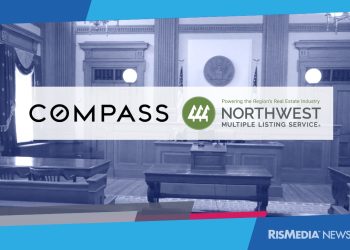
Realtors Reiterate Keys to Housing Recovery
By Steven Thomma and David Lightman
RISMEDIA, January 15, 2009-(MCT/RISMedia)-A week before taking office, President-elect Barack Obama worked Tuesday to ensure that he’ll have more than a trillion dollars at his disposal within weeks to shore up the still-sinking economy. He appeared on track to win a quick $350 billion down payment from Congress, with more to come later. Also Tuesday in other economic efforts, National Association of Realtors President Charles McMillan addressed the House Financial Services Committee, saying that in order to move the country out of this economic crisis, Congress and the next administration must place significant emphasis on restoring confidence in the housing market.
“The housing sector is at the core of the current economic crisis,” McMillan said. “A renewed, revitalized and robust housing market is essential to generating commerce and helping families build wealth.”
Obama, with top aides in tow, worked at what one aide called a continuing high-stakes effort to assure rapid congressional support for an unprecedented outpouring of money to reverse the country’s downward economic spiral.
First, he’s trying to convince Congress to let him have the second half of the $700 billion Wall Street bailout package created last fall. Senate Democrats signaled afterward that, while they still have questions about how he’ll spend the money, they will give their OK this week so he can start tapping into the money within days of becoming president.
Second, he’s still working to convince lawmakers to approve a stimulus package that would allow him to spend upward of $800 billion over two years to create more than 3 million jobs, many of them in construction and manufacturing.
Democrats were hopeful that they could pass a bipartisan bill by mid-February, but they said that questions remained and the bill was still being negotiated. They said that Obama was willing to bargain, apparently ready to drop a proposed $3,000-per-job tax credit to businesses for jobs created or saved, for example, and to expand an energy tax credit.
“Did he close the deal? Well, he did a lot of closing today,” said Sen. Debbie Stabenow, D-Mich. “There’s no better closer.”
The more pressing issue was Obama’s urgent request, formally made by President George W. Bush on his behalf, for the remaining $350 billion in the Troubled Asset Relief Program.
Obama told Democrats that he will use the money differently from how Bush and Treasury Secretary Henry Paulson used the first half, a critically important offer to win over members of Congress who don’t think the first $350 billion was well spent or monitored.
Most notably, Obama said he’d focus more on helping homeowners avoid foreclosures, work more to help people get student loans and car loans, and make sure that the taxpayers’ money didn’t go to high salaries or bonuses for Wall Street executives.
Meanwhile, during McMillan’s testimony, he congratulated Chairman Barney Frank, D-Mass., on H.R. 384, the TARP Reform and Accountability Act, which was introduced last week. Many points in this bill reinforce NAR’s proposed recovery plan to stimulate housing investment, mitigate foreclosures, help current homeowners, and provide needed liquidity to commercial mortgage markets to ensure that financing is available.
The principle focus of NAR’s plan is to ensure that the Troubled Asset Relief Program does what it was originally intended to do – end the credit crisis and jumpstart mortgage lending. “It is imperative to get TARP back on track by targeting funds for mortgage relief, which will help lower mortgage rates and reduce foreclosures,” said McMillan. “In addition, eliminating the repayment feature of the first-time home buyer tax credit and expanding it to all home buyers; reinstating the higher mortgage loan limits for FHA, Fannie Mae and Freddie Mac; and lowering mortgage interest rates through a buy-down program will meaningfully impact the housing industry.”
“We are pleased that Congress is moving forward on these important issues. Together these actions will build a solid foundation for a housing recovery,” said McMillan.
NAR’s plan also includes keeping mortgage interest rates low, boosting home buyer confidence, and reducing the current foreclosure rate. NAR has also asked that regulators be encouraged to help financial institutions resolve problems in the short-sale process, make it easier for servicers to modify existing loans, remove unreasonable underwriting guidelines and insist that credit reporting agencies correct errors promptly.
“Low interest rates are only effective if people can get a loan. We hear every day from our members that even home buyers with good credit are having trouble getting mortgage loans. We must all work together to unclog the housing and financial system,” said McMillan.
NAR called on Congress to use current TARP dollars to not only reduce interest rates, but also fix operational issues that are preventing consumers from getting or modifying home loans. “These are critical steps that must be undertaken quickly if we are to right our nation’s housing and financial markets,” McMillan said.
NAR hailed the House of Representatives’ actions and called on the Senate to move quickly in adopting its proposal. NAR also expressed hope that the new administration will focus on a housing recovery as it moves forward with a larger stimulus package.
On Tuesday, the No. 2 official at the Federal Reserve also told Congress that it’s essential that Congress allow the second $350 billion to be spent. Federal Reserve Vice Chairman Donald Kohn also endorsed Obama’s idea of using some of the money to ward off more home foreclosures.
“Preventable foreclosures harm not only the affected borrowers and their communities but also, through their effects on the housing market, the broader economy and the financial system as well,” Kohn told the House Financial Services Committee.
While most Democrats at the lunch meeting welcomed the push against foreclosures and other changes, they told Obama that they want to see more details.
Obama, said Sen. Ben Nelson, D-Neb., “wants us to trust and verify, but I’m not sure yet what we’re supposed to verify.”
Republicans had similar thoughts: “Too general,” said Sen. John Cornyn, R-Texas.
“The American people have a lot of questions about how additional funds would be used,” said Sen. Mitch McConnell, R-Ky., his party’s leader in the Senate.
“The current administration used these funds for the auto industry, a move that I opposed,” he said. “Now congressional Democrats are urging more of the same. The American people still don’t have assurances that this money will not be wasted or misused to play favorites. So far, the incoming administration has not said whether it plans to limit funds to their original purpose or to expand their use to help specific industries.”
Obama spoke with McConnell on Monday, seeking broad bipartisan support even though he doesn’t need it. He planned to meet with other Senate Republicans later.
“We’ll be happy to listen,” McConnell said. “They’ll have a receptive albeit cautious audience.”
Ultimately, Obama doesn’t need much to get the money. Congress gave itself the power to block the second installment, but that would take majority votes in the House of Representatives and the Senate, both of which Democrats control.
© 2009, McClatchy-Tribune Information Services.










